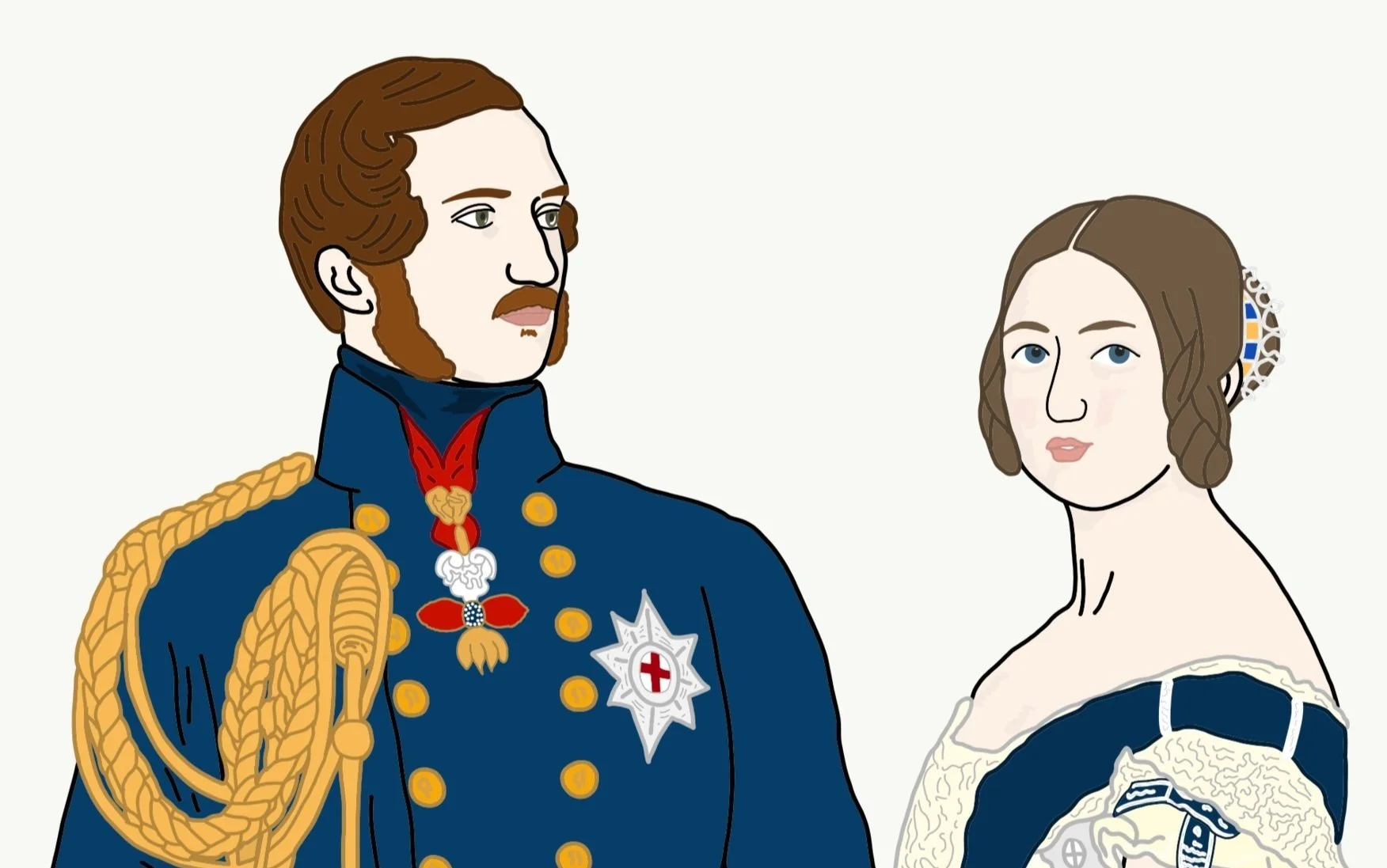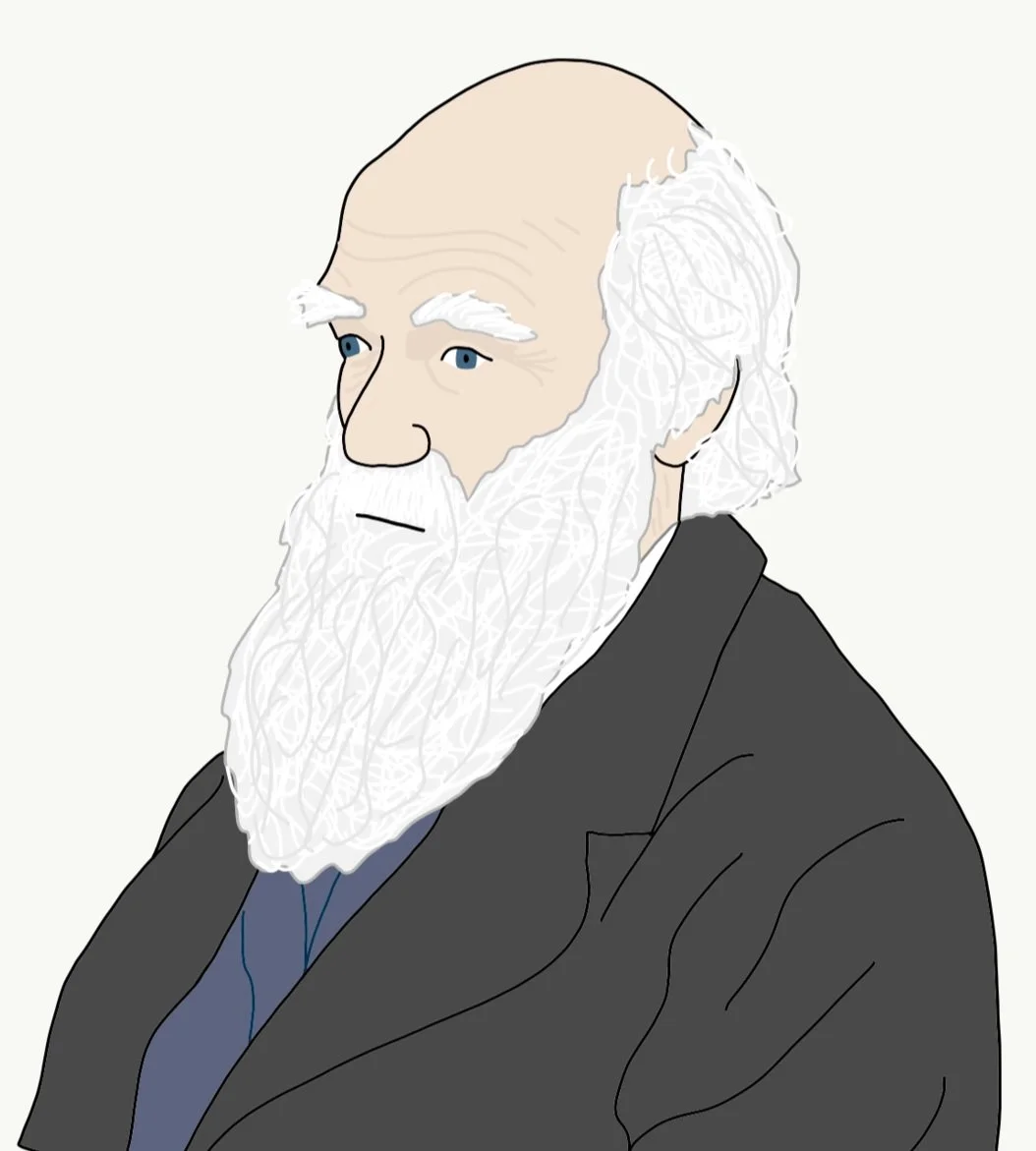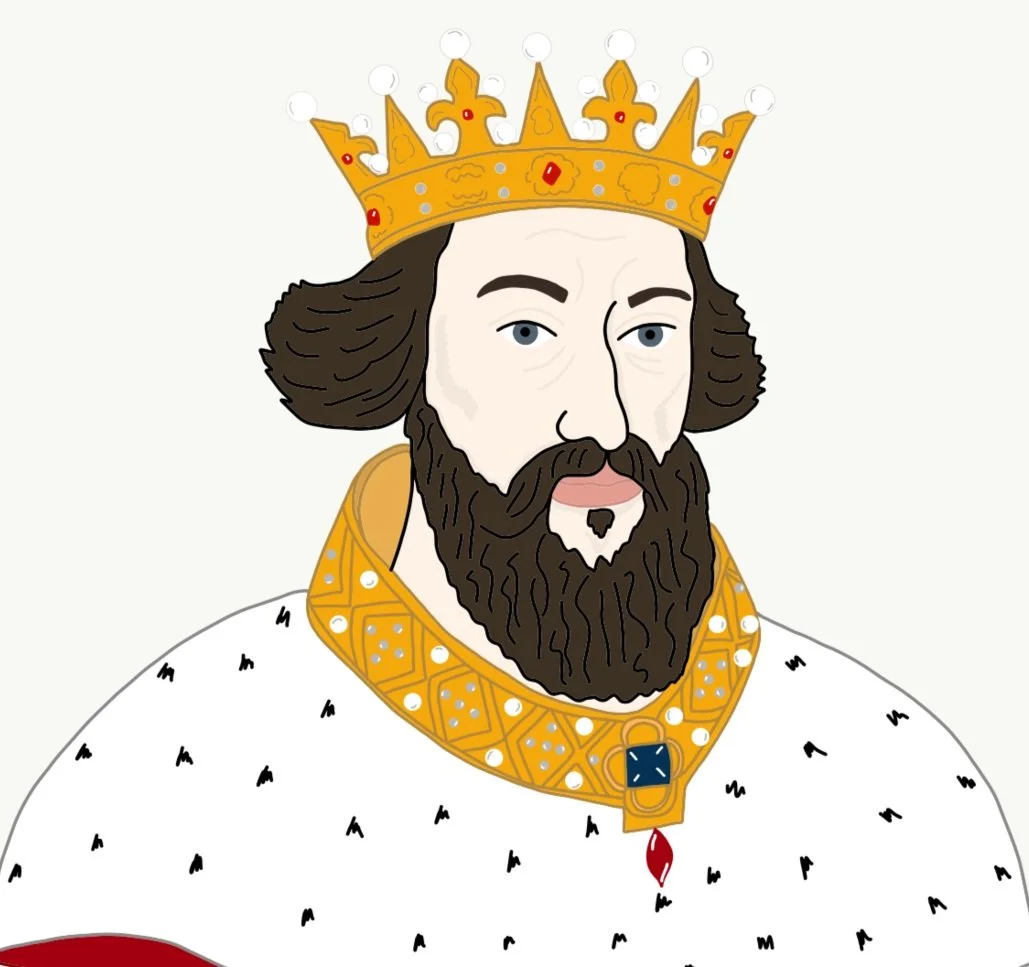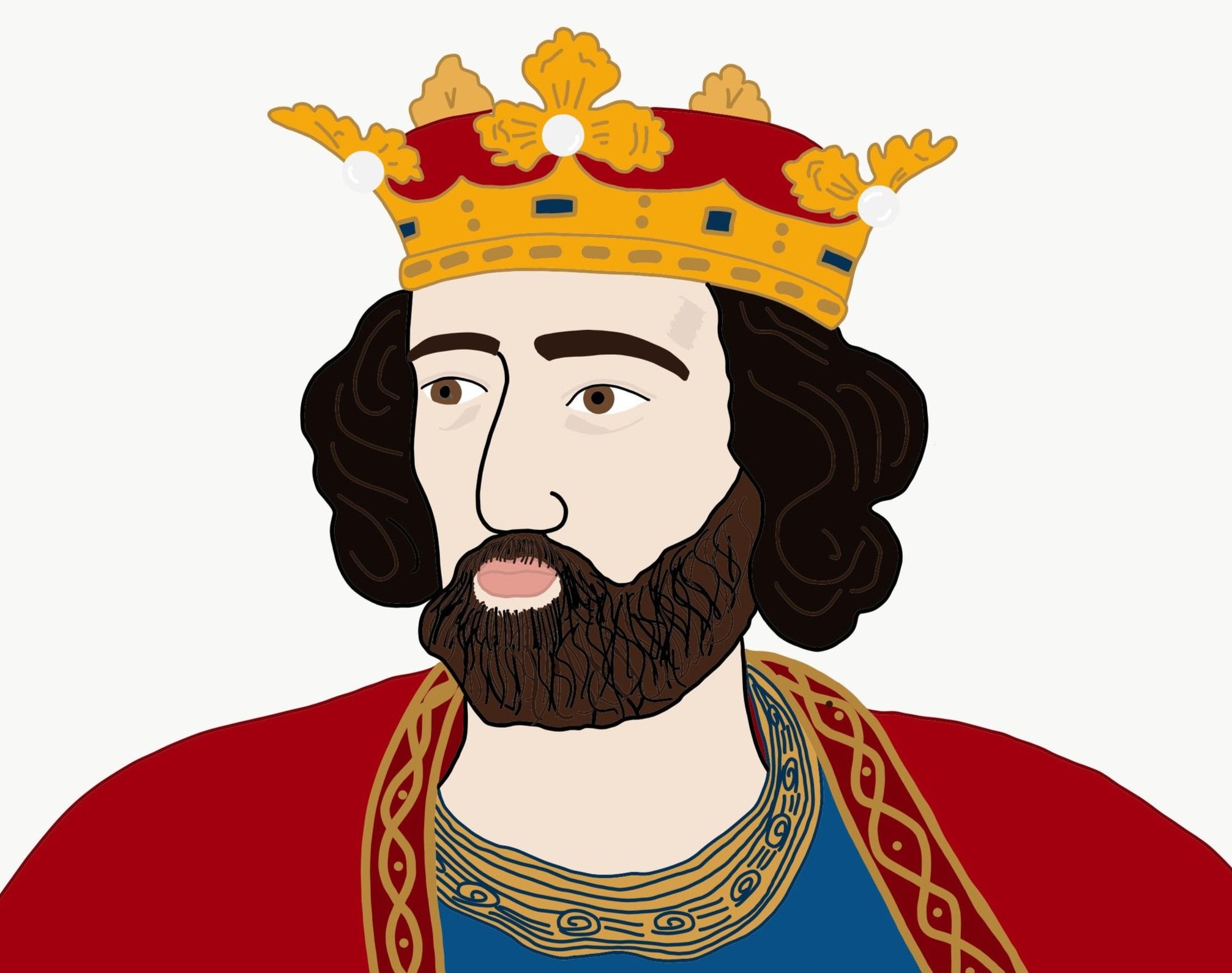November 21st - 27th
“A new type of Parliament; a new way of thinking about evolution; and a new way to sharpen your pencils - all appear this week in history...”
On 21st November…
Victoria and Albert’s first child is born
1840 - Queen Victoria gave birth to the first of her nine children, her daughter called Victoria, Adelaide, Marie Louise. Princess Victoria could fluently speak English, German, and French by the age of 3 years. She grew up and married Friedrich Wilhelm of Prussia who became Emperor of Germany. Their son was Kaiser Wilhelm the leader of Germany during World War I.
On 22nd November…
1428 - Richard Neville, 16th Earl of Warwick, was born. He earned the nickname the Kingmaker for the roles he played in helping men to become king of England. First, he helped Edward IV become king, and then later he worked against Edward to get the deposed King Henry VI back onto the throne during the Wars of the Roses.
The infamous pirate ‘Blackbeard’ is killed
1718 - The pirate Edward Teach better known as Blackbeard was killed in a fight with a royal Navy officer. Lieutenant Maynard beheaded the dead pirate and placed the decapitated head at the front of his ship as a warning to all other pirates in the area. Blackbeard was the most famous and feared of all pirates; it is said that he placed lit fuses under his hat that appeared on either side of his face making him appear naturally fierce and wild and as if he came from hell itself. His legendary buried treasure has never been found.
1819 - George Eliot was born in Warwickshire, England. George was the pen name of Mary Anne Evans; she altered her writing name in the hope that her writing would be taken seriously because female authors were associated with writing romantic novels. Some of her famous novels include Silas Marner and Middlemarch, her books were very successful and popular in the Victorian era.
1963 - C.S. Lewis died. He was the author of The Chronicles of Narnia which includes the tale of The Lion, The Witch and The Wardrobe. During his lifetime he wrote over 30 books and was a professor at both Oxford and Cambridge universities.
1963 - John F. Kennedy, President of the U.S.A, was assassinated by Lee Harvey Oswald whilst being driven through Dallas in an open topped car. He was the youngest man to ever be elected President of the United States of America.
On 23rd November…
King Eadred dies
955 - King Eadred, one of the first kings of all England died. He had suffered from poor health all of his life and could barely eat anything. During his reign he defeated the continuous uprisings in Northumbria; the people there had proclaimed the Vikings Erik Bloodaxe, then Olaf Sihtricson, and then Erik Bloodaxe again as their king even though they had already acknowledged King Eadred as their overlord.
1499 - Perkin Warbeck was hanged for trying to escape from the Tower of London. Perkin was originally from Belgium but when he was in Ireland, locals there thought he was of royal birth because of his silk clothing. He decided to go along with it, pretending to be the lost son of King Edward IV whose two sons had disappeared from the Tower of London under the reign of their uncle Richard III. Perkin Warbeck gathered support from nobility across Europe and England and attempted to invade several times. On his last attempt, he fled into hiding on hearing that King Henry’s army was close by. Warbeck was soon captured and taken to the Tower of London where he was treated quite well considering his crime. It was only when he tried to escape from the Tower that he was sentenced to death by hanging. To be honest it was inevitable that he would eventually be executed because of the threat he posed to the reign of Henry VII, so far, no king in history had allowed anyone to threaten their throne without execution why would Henry VII be any different.
JL Love patents the pencil sharpener
1897 - The pencil sharpener as we know it today was patented by J.L. Love. Before this pencil sharpeners were a lot larger and used a handle to turn the blades to sharpen the pencils. J.L. Love’s design was small enough to put in your pocket or pencil-case.
1990 - Roald Dahl, the British author of books such as Charlie and the Chocolate Factory, James and the Giant Peach and Danny the Champion of the World died. Did you know that as well as being a writer of many books and screenplays, he was also a spy, an ace fighter pilot in the RAF, a chocolate historian and helped to invent a medical device?
On 24th November…
1542 - The Battle of Solway Moss took place between the English and Scots. This time the disagreement between the two countries began with the English King Henry VIII being a little annoyed that his nephew, the Scottish King James V, had ignored his request to meet and discuss the Scots breaking from the Roman Church just as the English had. King Henry, trying to get some attention and to show his displeasure, sent an army into Scotland to sack and burn a few towns just across the border. King James, in retaliation, did the same just south of the border. The two sides eventually met on the 24th of November near the River Esk and despite the English being outnumbered 15,000 to 3,000 they won the battle because the Scottish troops broke and fled when they assumed that the smaller English army was just a front and that much larger forces were the other side of the hill. Herein lies the old saying to never assume because it makes an ass out of u and me. Had they stayed and seen that the English army was just those few thousand men, maybe they’d have won the battle.
Darwin’s ‘On the Origin of Species’ causes controversy when it is published
1859 - ‘On the Origin of Species’ was published by Charles Darwin. His book and theory changed the way people viewed evolution and raised questions on Christian beliefs. Despite scientists praising his work many Christians called Darwin a heretic believing still that God created man in his own image and that there was no way that humans could have evolved from apes.
1940 - The city of Bristol was bombed by 148 German planes during the Bristol Blitz of World War II. The first bomb dropped on the city at 6pm and the raid continued for a further six hours. Over 200 people were killed, 187 were injured and over 1,400 people were made homeless overnight.
On 25th November…
1034 - King Malcolm II of Scotland died. His grandson Duncan inherited the throne to become King Duncan I.
Henry I distraught when his son and heir drowns at sea
1120 - Prince William Atheling, the son and only legitimate male heir of King Henry I of England drowned in the English Channel in the White Ship tragedy. The disaster caused problems years later when Henry died. William was among three hundred of the nobility who were onboard the ship when it sank after hitting a rock. Everybody drowned including the oarsmen and the captain apart from one person, a French butcher, who claims to have seen the Captain purposefully drown himself after hearing that the Prince had already disappeared beneath the sea. When Henry died arguments and civil war arose over the rightful heir to the throne; Matilda his daughter was supposed to become Queen but instead his nephew Stephen took the crown with the support of some of the nobility.
1626 - Edward Alleyn, one of the greatest actors of the Elizabethan stage died. He was also the founder of Dulwich College originally called the College of God’s Gift.
On 26th November...
1645 - The third Siege of Newark began during the English Civil War. During this last siege of the castle and town, Scottish forces who had joined with the Parliamentarians were in position to take control of the town. Huge earthworks were dug around the town, and the nearby River Devon was dammed to stop the corn mills from being able to work. By the following March the Newark still hadn’t surrendered to the Scottish forces and the town’s governor only admitted defeat when King Charles surrendered himself to the Scots in an attempt to split the alliance between the Scots and the Parliamentarians.
On 27th November…
Edward I calls together the Model Parliament
1295 - King Edward I called what became known as The Model Parliament. It is regarded as the first representative parliament. The King had called for archbishops, bishops, archdeacons and proctors from each diocese (a church district), 2 knights from each shire, 2 citizens from each city, 2 representatives from each borough, 7 earls and 42 barons to come to decide on his request of financial aid for the wars he was waging against France and Scotland. Each representative group met separately to consider the King’s request; clergy (the church), nobles (earls, barons and knights) and commoners (the regular everyday citizens). Each group decided to support the king, with each donating a percentage of their income.






